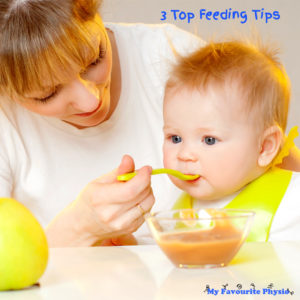16 Nov Struggling with feeding your baby with special needs solids

![]() Tried different food textures and baby still spitting the food out
Tried different food textures and baby still spitting the food out
Transitioning babies from milk to solids can challenging for some babies, and more so for babies with low muscle tone or special needs who have sensory processing issues. Many parents ![]() find feeding their little one with special needs and meal times to be really stressful because they worry that if little one
find feeding their little one with special needs and meal times to be really stressful because they worry that if little one ![]() does not eat well, they do not gain weight and may then need to be tube fed or may not be able to wean of their tube feeding.
does not eat well, they do not gain weight and may then need to be tube fed or may not be able to wean of their tube feeding.
Before any feeding occurs, it is important that a child is sitting well supported in an upright posture, where they do not have to worry about falling over in sitting. So instead of holding your child on your lap to feed solids, ensure that your child is sitting in a suitable feeding chair to allow them to sit upright comfortably.
Here are 3 Top Feeding Tips to help you with feeding your little one with special needs solids.
1. Use a Small Spoon ![]() that will fit comfortably into your child’s mouth. A large spoon tends to result is a large amount of food being piled into the spoon which is too overwhelming for a little one who is just starting to learn to eat solids. The result is baby either refuses to eat or most of the food is spat out immediately.
that will fit comfortably into your child’s mouth. A large spoon tends to result is a large amount of food being piled into the spoon which is too overwhelming for a little one who is just starting to learn to eat solids. The result is baby either refuses to eat or most of the food is spat out immediately. ![]()
2. Offer the spoonful of food to the side of the mouth, depressing the tongue ![]() has you place the spoon into baby’s mouth. This will encourage baby to curl their tongue, close their mouth to clean the spoon as you remove the spoon. This also encourages baby to use their tongue to move the food from the side of their mouth to the middle, before swallowing.
has you place the spoon into baby’s mouth. This will encourage baby to curl their tongue, close their mouth to clean the spoon as you remove the spoon. This also encourages baby to use their tongue to move the food from the side of their mouth to the middle, before swallowing. ![]()
3. Model feeding to your child by eating with them. Show your child how to chew by making big munching movements with food in your mouth ![]() and then swallowing.
and then swallowing. ![]() Babies often don’t know what to do with the food once it’s inside their mouth.
Babies often don’t know what to do with the food once it’s inside their mouth.
If you are concerned about your child’s ability to sit to eat, contact My Favourite Physio ![]() on (02) 9790 4233 to speak to one of our
on (02) 9790 4233 to speak to one of our ![]() Expert Paediatric Physiotherapists or DM us @myfavouritephysio
Expert Paediatric Physiotherapists or DM us @myfavouritephysio
